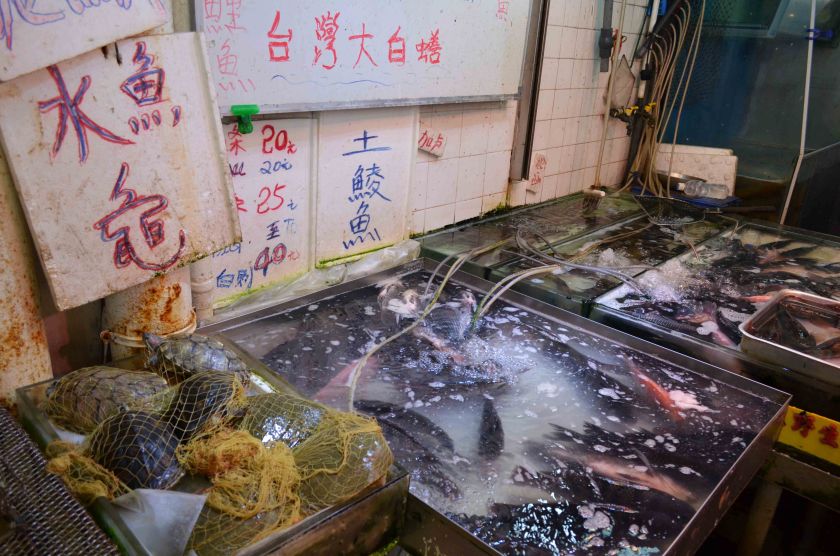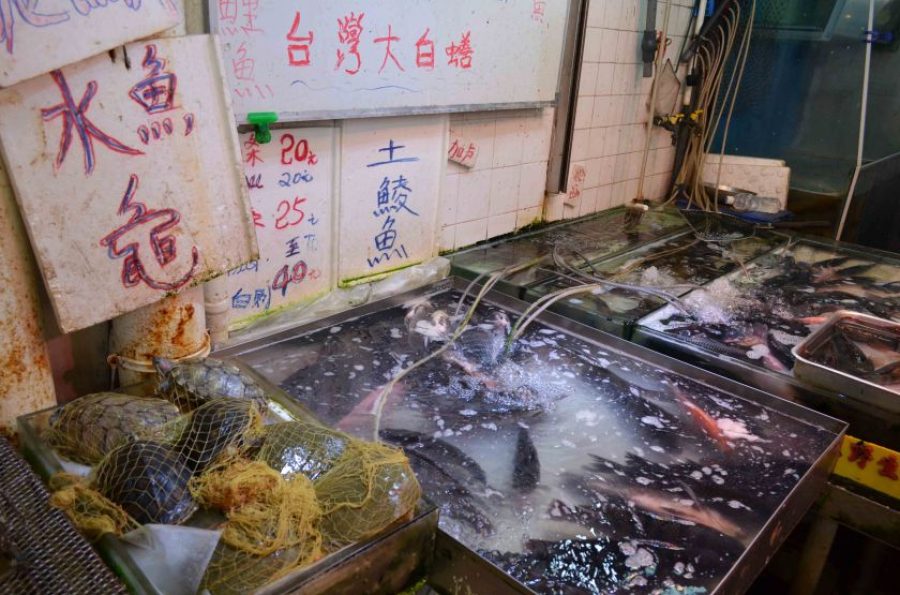University of Hong Kong (HKU) microbiologist Ho Pak-leung has suggested that wet markets should switch to electronic payments after health officials confirmed that some fish vendors were among those who contracted COVID-19.
Speaking on a Commercial Radio programme, Ho said that some of the confirmed COVID-19 patients around the world were linked to wet markets, and expressed concern that Hong Kong’s wet markets could be an “epidemic time bomb” that could result in more people coming down with the disease.
He said that out of the 73 wet markets managed by the Food and Environmental Hygiene Department, at least 11 of them have seen COVID-19 infections.
Ho said that the virus was more likely to have been transmitted by people not wearing face masks properly or communicating with stall vendors, and through cash changing hands.
He said that as a major shareholder of Octopus, the government should consider allowing people to pay for their groceries using Octopus smartcards at wet markets.
Ho also said the government should waive the installation and monthly fees for Octopus payment machines for market vendors throughout the epidemic.
Doing this, he said, would reduce the chance of the virus spreading through cash changing hands.
Ho said that it would be difficult to shut the city’s wet markets completely as people need to buy food, but said that elderly people should avoid going to the markets.
Instead, they should get younger people to buy the groceries for them, or go on days when there are fewer people.
He also said that for anyone shopping at markets, they should wear their face masks properly and make sure they wash and cook things properly.
(RTHK/Macau News)






